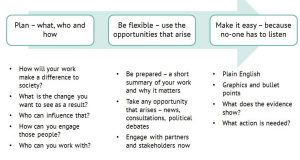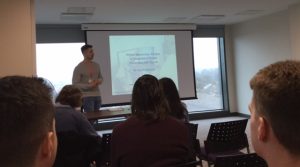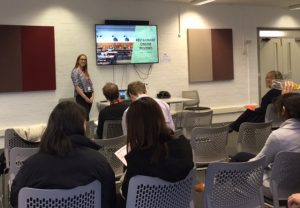HE review deadline approaches – the latest on fees and funding
Thank you to the staff and students who responded to the HE review survey that we ran before and after Easter, we are preparing our response and will use the data from the survey to inform it.
We asked respondents for their top 3 concerns and the top concerns were:
- Funding – 55% of respondents) selected “how students fund their living expenses” and 21% selected “how students contribute to their tuition fees”
- Outcomes: 41% said “whether the system delivers the skills, knowledge and attributes that the country needs” and 26% said “how employable a degree will make me”
- Access and participation: 31% said “ how to widen participation and ensure good outcomes for all students” and 22% said “how the systems works for part-time and/or mature students”
The large proportion of respondents highlighting living costs reflects concerns raised by the NUS, UUK and others about living costs – several respondents raised concerns elsewhere in our survey not just about disadvantaged students in this context but also students whose parents, although assessed to make a contribution to living expenses, in fact do not or cannot do so, and comments were also made that a full loan is sometimes inadequate.
In the meantime:
Parliamentary Question – Maintenance Loan Increase
Q – David Simpson: To ask the Secretary of State for Education, whether he has plans to increase the maintenance loan for students to help prevent them going in to overdrafts.
A – Sam Gyimah:
- The government has announced an increase of 3.2% to the maximum loans for living costs for full-time students starting their courses in the 2018/19 academic year – the highest levels on record. In addition, new students attending honours degree courses (and other level six courses) from academic year 2018/19 on a part-time basis will, for the first time, qualify for loans for living costs.
- The Review of Post-18 Education and Funding will consider how we can provide a joined up system that is accessible to all students. It will consider how learners receive maintenance support, both from government and from universities and colleges. The review will receive input from an expert independent panel who will publish their report at an interim stage, before the government concludes the overall review in early 2019.
Parliamentary Question: Disabled Students’ Allowances
Q – Roger Godsiff: To ask the Secretary of State for Education, with reference to the £200 self-contribution that disabled students in higher education must make to access funding for computer equipment, if the Government will make an assessment of the potential merits of the British Assistive Technology Association’s suggestion that the contribution is reviewed and students are able to have that charge added to their student loan.
A – Sam Gyimah:
- Eligible higher education students are able to access maintenance loans, which are paid as a contribution towards a student’s living costs at university. All students require access to a computer so this is now a mainstream cost to participate in higher education, and we believe it is reasonable for any student to fund the purchase of a standard computer for email and word processing purposes from their maintenance support. The cost of a standard computer has been calculated at around £200. Any disabled student recommended a higher-powered computer to run assistive software is funded for any costs in excess of £200. Students are not expected to fund any assistive software or the training to use it. We do not consider it is necessary to provide an additional £200 in the form of a loan, given that this is a cost all students are expected to fund as part of their maintenance.
Graduate Employability
The Graduate Labour Market Statistics (2017) were released this week. Wonkhe provide a short summary of the statistics:
- Graduates continue to earn more than non-graduates (£10,000 more a year, on average), and postgraduates earn more than graduates (around £6000 more). Wages, employment and skilled employment are all rising slowly but surely – and in each case, there is a benefit correlated with higher education. DfE, the minister and Universities UK have all been quick to welcome what reads as a validation of higher study.
- Looking more broadly at a time series shows us that the long slow climb back to 2008 salary expectations is nearly over. And there are a fascinating series of demographic and study characteristic splits – offering us the counter-intuitive finding that graduates with a first class degree, aged between 16 and 64, earn less than their compatriots with a 2:1 or 2:2.
Delve in here for an interactive chart to take a closer look at the detail.
The statistics were covered by the Financial Times in: ‘Graduate premium’ holds steady despite rising student numbers. UUK also describe the statistics in their blog: Employment data reveals added ‘value’ for graduates stating it dispels the myth that there is an oversupply of graduates with worthless degrees. They go on to say:
- Yesterday’s data reveals that both graduates and postgraduates of working age have consistently higher employment rates than those without degrees – 16.4 and 16.6% higher respectively – and both working age and younger graduates and postgraduates are three times more likely than non-graduates to be employed in a highly-skilled job.
Meanwhile Celia Hunt (HE Funding Council Wales) blogs on the limitations of LEO data and why applicants shouldn’t let it be the only influence on their choice of institution. And Paul Greatrix of Nottingham University describes the university which guarantees additional tuition or an entry-level professional position to their unemployed leavers.
OFS blogs
The OfS are blogging about a range of issues – one this week on “Five myths about the NSS”
- “The National Student Survey is 13 this year. Like any teenager it has been through many changes (especially recently), has attracted its share of myths and, perhaps, is rather misunderstood! Some of these myths can be entertaining; others are simply unhelpful and seriously misleading. From a list that could go on, we have come up with a top five to look at.”
There is a different view from Camille Kandiko Howson on Research Professional here.
Widening Participation and Achievement
This week NUS released Class dismissed? The NUS Poverty Commission Report. Shakira Martin (NUS President) blogs for Wonkhe to describe how class and poverty are linked in HE. She aims to smash the barriers both to getting in and getting on. She notes that:
[The poorest students]…pay more directly – like higher interest because they’re more reliant on debt. And they pay indirectly – like higher transport costs because they have to travel longer distances. The impact is to restrict choice, restrict access and increase drop out.
Shakira highlights that even if sufficient money is available to students if the costs continue to rise HE will not remain affordable. Talking on the HE Review she states:
- “even if NUS can secure all the changes we need at a national level, the FE and HE sectors have got to make changes too. We want providers to ensure the cost of participation is fair, by developing strategies to reduce the costs of studying as far as possible, ensure transparency over the costs that remain, and ensure affordable accommodation for low-income students as part of access and participation plans. We need students to be able to access additional support if they need it too. We also want institutions to develop student employment strategies that help students access high quality work while they study and working-class students access to paid internships so they have the same opportunities as their richer peers. And we want better IAG that starts with the perspective of the student”.
In response to the NUS report UUK called for the reinstatement of maintenance grants and more flexible study options. Layla Moran (Lib Dem Education spokesperson) stated:
- As this important report makes clear, the factors driving this inequality are varied and complex, but the government must not shy away from trying to tackle them, including by immediately reinstating maintenance grants and exploring options like individual learning accounts to provide more funding support for people during education and training.
- In a fair and liberal society access to high quality education and training must never be limited by an individual’s background or circumstances, and it should be an absolute priority for the government to address the fundamental unfairness highlighted in this report.
Parliamentary Question: Part time and Flexible Learning
Q – Tulip Siddiq: what steps Government is taking to (a) support people who want to study part-time and (b) encourage flexible learning.
A – Sam Gyimah:
- Studying part-time can bring enormous benefits to the individual, and also to the economy and employers. To enable part-time students meet the full cost of their tuition the government introduced up-front fee loans for the first time in 2012/13. We are further enhancing the student finance package for part-time students by introducing maintenance loans, equivalent to full-time, in 2018/19. We also intend to extend the part-time maintenance loan to eligible students studying distance learning courses in 2019/20, subject to the development of a robust control regime to manage the particular risks and challenges associated with this mode of study.
- Since 2015/16 graduates starting a second honours degree course part-time in engineering, technology or computer science have qualified for fee loans for their course. The government extended this from 2017/18 to graduates starting a second honours degree course part-time in any science, technology, engineering and mathematics (STEM) subject.
- The government legislated in the Higher Education and Research Act 2017 for the Office for Students (OfS) to have regard to part-time study and the OfS has a duty to promote choice and opportunities in the provision of higher education.
- Accelerated degrees allow students to enter the workplace more quickly than a traditional course would permit. We legislated in the Higher Education and Research Act to allow a specific fee cap to be set for accelerated degrees, removing a key barrier to their wider availability. We recently completed a public consultation about the provision of accelerated degree courses, and will respond later this year.
- Transfer between courses and providers can also support flexible learning. The OfS will have a duty to monitor and report on arrangements for student transfer, and a power to facilitate, encourage, or promote awareness of such arrangements.
Parliamentary Question – Access to HE
Q – David Simpson: To ask the Secretary of State for Education, what his Department’s policy is on encouraging working class students to attend university?
A – Sam Gyimah:
- Widening participation to higher education is a priority for this government. It is vital that everyone with the capability to succeed in higher education has the opportunity to benefit from a university education, regardless of background.
- University application rates for 18-year-olds to full-time study remain at record levels, including those from disadvantaged areas. Our first guidance to the Office for Students, asked them to encourage providers to make further progress in ensuring that students from areas of low higher education participation, low household income and/or low socio-economic status, can access, participate and succeed in higher education.
- A new transparency condition will require higher education providers to publish application, offer, acceptance, non-continuation and attainment rates by socio-economic background, gender and ethnicity, which will provide greater transparency and help drive fairness on admissions and outcomes
Racial influence in applications
UCAS are undertaking a full investigation following a journalist’s claims that Black applicants to HE are more likely to have their applications investigated for false or missing information than white applicants. UCAS issued a statement here.
Industrial Strategy: Artificial Intelligence
The Government launched the Artificial Intelligence Industrial Strategy sector deal on Thursday. The deal sets out actions to promote the adoption and use of AI in the UK (recognising the recommendations of the independent review: Growing the AI industry in the UK).
The Government list the following actions they’ll take to support AI:
Support AI innovation to raise productivity:
- Invest up to £20 million in the application of AI in the services sector through the Next Generation Services Industrial Strategy Challenge. This will include a network of Innovation Research Centres and collaborative R&D to develop new applications of AI and data-driven technologies in sectors such as law and insurance5.
- Invest £93 million from the Industrial Strategy Challenge Fund into the robotics and AI in extreme environments programme, towards the research and development of robotics and AI technologies for use in industries such as offshore and nuclear energy, space and deep mining, with the aim of supporting safer working practices for people in extreme environments that could prevent potential harm and increase productivity.
- The government will work with academia, the broader research community, industry and end users to integrate AI into future Industrial Strategy Challenge Fund challenges.
Stimulate uptake of AI, including within the public sector:
- Create a £20 million GovTech Fund, supported by a GovTech Catalyst, which will support tech businesses to provide the government with innovative solutions for more efficient public services and stimulate the UK’s growing GovTech sector.
- Raise overall UK R&D intensity by raising total R&D spending across public and private sectors to 2.4% by 2027, and 3% over the longer term.
- Increase in the rate of the R&D Expenditure Credit from 11% to 12% from January 2018.
- Accompanying the deal the Government have reconfirmed their commitment to fund 8,000 computer science secondary school teachers and 1,000 new AL related PhDs by 2025.
A Wonkhe blog discusses the role of universities in the ethical challenges around data and artificial intelligence.
Life Sciences Industrial Strategy report
And while we’re on the Industrial Strategy, the Lords Science and Technology Committee issued a report on Thursday saying the government must do more to implement the Life Sciences Industrial Strategy:
- “The Committee recommends there should be a single body with complete oversight the implementation of the strategy called the Life Sciences Governing Body. The Business, Energy and Industrial Strategy Secretary and the Health and Social Care Secretary must ensure this Body has the cross-Government backing it needs to do its work.
- The Government has failed to engage the NHS effectively even though the NHS is critical to the delivery of the strategy. As a result, the NHS’s commitment to the strategy has so far been incoherent, uncoordinated and ineffective. It does not currently have the capacity to rise to the challenge of its implementation and current NHS structures stifle innovation.
- The Committee urges the NHS to give greater priority to the uptake and spread of innovation and to rewarding clinicians and managers who make such adoption successful. The Government should explore how it can offer financial incentives to those NHS trusts that adopt and spread proven innovations”..
Duty of care to students
During Tuesday’s Value for Money in HE select committee hearing and at the previous Office for Students Conference Sam Gyimah suggested that HE institutions’ should act as if they are in “loco parentis” to students. During the committee he explained his personal view was that universities had a duty of care to protect students’ wellbeing.
Nick Hillman of HEPI has written about this, suggesting that although the idea goes down badly with universities, there are some things work considering in Are universities in loco parentis? The good old days or the bad old days?
HE debate
Shadow secretary of state for education Angela Rayner presented a Humble Address to annul the Higher Education and Research Act 2017 (Consequential, Transitional, Transitory and Saving Provisions) Regulations 2018 (S.I., 2018, No. 245) which granted the Office for Students (OfS) regulatory powers of higher education.
She stressed that the Government had ignored criticism during the development of the Office for Students (OfS), through the passage of the Higher Education and Research Act 2017 and the controversial appointment and resignation of Toby Young. During that “shambolic and politicised appointment process” the commissioner for public appointments had “found that the governance code was not followed—itself a breach of the ministerial code,” Rayner stated and asked if the minister would reject this finding or correct the record. The Government had used the appointment process to “pursue a deeply ideological agenda” which was apparent in the Act itself giving the OfS a duty to promote competition in a free market, she continued.
Michael Tomlinson (Con, Mid Dorset and North Poole) quoted Universities UK in saying that “annulment of the statutory instrument is…not in the interest of either universities or students”. Rayner responded that the intention was not actually to annul the Act, the vote was “not about annulling; this is about the Government making sure that legislation is fit for purpose. If the motion is passed tonight, the Government can go away and ensure that the Office for Students is fit for purpose.”
She highlighted “serious failings in the legislation” in the OfS “acting as provider and regulator and a conflict of interest in the regulations”, which led to a long series of questions covering: if small providers would be outside of the regulation of the Office for students; if the OfS had the necessary powers it needed to protect students if a provider failed; why the Government were removing the power of the director of fair access to approve or reject access and participation plans and issues around fines for autonomous student unions in no-platforming.
Chair of the Education Select Committee, Robert Halfon, stated his support for the OfS as the new regulator and stressed his confidence in its Chair Sir Michael Barber, however, he raised concern “about the lack of further education representatives on the board.” He pressed for the Government to “make it a priority to recruit a serious representative from further education, from the Association of Colleges or elsewhere, into the vacant position on the board” and to appoint a “panel of apprentices alongside the OfS student panel to inform the work and ensure that the views of apprentices are properly listened to.”
SNP spokesperson for education, Carol Monaghan, raised concern around representation of devolved nations at UK Research and Innovation (UKRI), whilst they were currently served by Professor Sir Ian Diamond from the University of Aberdeen, continued representation was not guaranteed in the Act which could have a “negative impact on Scotland’s higher education sector.”
Alex Sobel (Lab/Co-op, Leeds North West) supported the motion and said that the OfS was not fit for purpose. He strongly criticised the Government in creating an institution that prevented vice-chancellors from speaking out and damaged academic freedom.
There was “precious little evidence” of the OfS acting as a “great champion of consumers” said Labour’s Wes Streeting (Ilford North), going on to say that the OfS was the “logical conclusion of a vision of a higher education system” where “the market rules supreme and which seeks to reduce higher education to a commodity for students to purchase as consumers and trade in for future success in the workplace.”
The wider experience and outcomes for students, including well-being and mental health, should be prioritised by the OfS, said Helen Whately (Con, Faversham and Mid Kent).
The Minister for Universities, Science, Research and Innovation, Sam Gyimah, said annulling the legislation before the House was “unviable” due to the large structural changes in the sector since the last “legislative framework for higher education” during which “the sector was smaller and competition was limited.”
The minister made clear that the changes brought in through the statutory instrument under debate were necessary as the previous regulatory system, based on attaching conditions to grant funding, was “simply no longer a viable mechanism to deliver regulatory oversight and to protect students’ interests in the long term.” He outlined how the OfS encompassed “a new, outcome-driven approach to regulation that seeks to open up university opportunities to all, to enhance the student experience, to improve the accountability and transparency of providers, to promote the quality and flexibility of higher education choices, and, crucially, to protect students’ interests.”
Responding to Paul Blomfield (Lab, Sheffield Central) the minister agreed that there was an issue around student wellbeing that needed to be either tackled by the OfS or other means. He said there was “no going back” to the old system as HEFCE and the Office for Fair Access had ceased to exist on 1 April 2018 and could not be “resurrected without primary legislation.” He concluded that the OfS in delivering “the regulatory functions of HEFCE in relation to teaching in higher education” and the statutory remit of the Director of Fair Access brought “together the powers, duties, expertise and resources under the collective responsibility of the OfS and allows for a smooth and orderly transition.”
The House divided: Ayes: 211 Noes: 291. Question accordingly negatived.
Consultations
Click here to view the updated consultation tracker. Email us on policy@bournemouth.ac.uk if you’d like to contribute to any of the current consultations.
New consultations and inquiries this week:
- Special educational needs and disabilities inquiry
Other news
Policy impact and research: – Wonkhe have an article about research and policy. On this topic, we’re on the look out for BU projects which have been successful in engaging policy makers for an interview series – please contact us if you think this might be you: policy@bournemouth.ac.uk
Sense of belonging: The Office for Students published A ‘Flying Start’ to university study this week focusing on building students’ sense of belonging. It describes an induction overhaul (5 full days of intense participative subject specific sessions) stating it exposes the hidden rules of the game and replaces exclusionary practices with inclusive participation. The article lists the research behind the change. The Flying Start project won the course and curriculum design award at the 2018 Guardian HE awards.
Subscribe!
To subscribe to the weekly policy update simply email policy@bournemouth.ac.uk
JANE FORSTER | SARAH CARTER
Policy Advisor Policy & Public Affairs Officer
Follow: @PolicyBU on Twitter | policy@bournemouth.ac.uk




















 Upcoming opportunities for PGRs – collaborate externally
Upcoming opportunities for PGRs – collaborate externally BU involved in new MRF dissemination grant
BU involved in new MRF dissemination grant New COVID-19 publication
New COVID-19 publication MSCA Postdoctoral Fellowships 2024
MSCA Postdoctoral Fellowships 2024 Horizon Europe News – December 2023
Horizon Europe News – December 2023